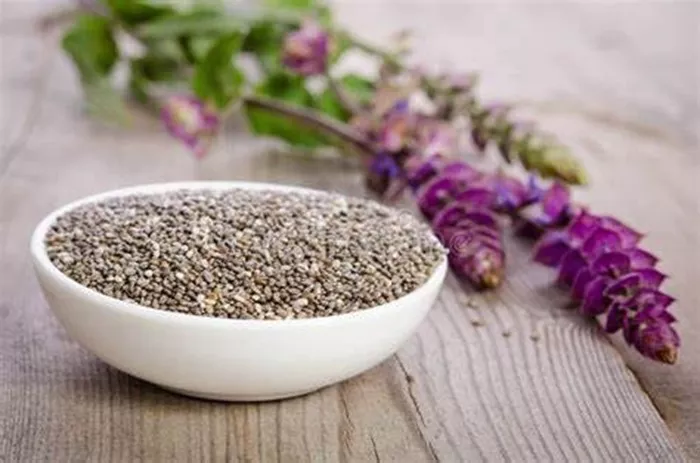Mental illness has become a significant global health concern, affecting individuals’ well-being, relationships, and overall quality of life. Prevention of mental illness is crucial as it can reduce the burden on individuals, families, and society. In this article, we will explore various ways to prevent mental illness from a professional point of view, covering aspects such as lifestyle modifications, psychological resilience building, social support enhancement, and early intervention.
Lifestyle Modifications
A healthy lifestyle forms the foundation for good mental health. Adequate sleep is essential. Most adults require 7-9 hours of sleep per night. During sleep, the brain processes emotions, consolidates memories, and repairs itself. Lack of sleep can lead to irritability, mood swings, and impaired cognitive function, increasing the risk of developing mental health issues such as anxiety and depression. Establishing a regular sleep schedule, creating a comfortable sleep environment, and avoiding stimulants like caffeine and electronic devices before bedtime can promote better sleep quality.
Regular physical exercise is another vital lifestyle factor. Exercise stimulates the release of endorphins, which are natural mood lifters. It also reduces stress hormones such as cortisol. Engaging in activities like jogging, swimming, yoga, or cycling for at least 30 minutes a day, several times a week, can improve cardiovascular health, boost self-esteem, and enhance overall mental well-being. Even simple activities like walking in nature have been shown to have a positive impact on mental state.
A balanced diet is equally important. Nutrients play a crucial role in brain function. Foods rich in omega-3 fatty acids, such as fatty fish, walnuts, and flaxseeds, are beneficial for brain health. Complex carbohydrates like whole grains provide a steady supply of energy and help regulate mood. Adequate intake of vitamins and minerals, including B vitamins, vitamin D, and magnesium, is also necessary. Avoiding excessive consumption of processed foods, sugary drinks, and high-fat items can help maintain stable blood sugar levels and prevent mood fluctuations.
Psychological Resilience Building
Cultivating psychological resilience enables individuals to better cope with stress, adversity, and life’s challenges, thereby reducing the likelihood of developing mental illness. One way to build resilience is through positive self-talk. When faced with a difficult situation, instead of engaging in negative self-criticism, one can reframe thoughts in a more positive and constructive manner. For example, replacing “I can’t do this” with “This is a challenge, but I will try my best and learn from it.”
Mindfulness and meditation practices are highly effective in enhancing resilience. Mindfulness involves being fully present in the moment, observing one’s thoughts and feelings without judgment. Regular meditation practice, even just a few minutes a day, can help individuals become more aware of their emotional responses and gain better control over them. It can reduce rumination, which is often associated with anxiety and depression. Techniques such as deep breathing exercises during moments of stress can also activate the body’s relaxation response and calm the nervous system.
Setting realistic goals and learning to adapt to change is another aspect of resilience building. Unrealistic expectations can lead to feelings of failure and disappointment. By breaking down larger goals into smaller, achievable steps, individuals can experience a sense of accomplishment and maintain motivation. Additionally, being flexible and open to change allows one to better navigate life’s uncertainties and transitions without excessive stress.
Social Support Enhancement
Strong social connections are a powerful buffer against mental illness. Maintaining healthy relationships with family members, friends, and colleagues provides emotional support, a sense of belonging, and opportunities for social interaction. Spending quality time with loved ones, sharing experiences, and offering mutual support can enhance well-being. For example, having regular family dinners, going out with friends, or participating in group activities can strengthen social bonds.
Joining community organizations or clubs related to one’s interests can expand social networks. This could include hobby groups like book clubs, sports teams, or art classes. Volunteering is also an excellent way to meet new people, contribute to society, and gain a sense of purpose. Through these activities, individuals can build a diverse social support system that can provide different types of support during difficult times.
Effective communication skills are essential for maintaining good social relationships. Learning to express one’s feelings and needs clearly and listening attentively to others can prevent misunderstandings and conflicts. Active listening involves giving full attention to the speaker, showing empathy, and validating their feelings. By improving communication, individuals can enhance the quality of their relationships and reduce social stressors that could potentially contribute to mental health problems.
Early Intervention and Screening
Early identification and intervention of mental health issues can prevent them from progressing and becoming more severe. Regular mental health screenings are recommended, especially for individuals with a family history of mental illness, those who have experienced significant life stressors like trauma or loss, or those with chronic medical conditions. Screenings can be conducted by healthcare providers during routine check-ups using standardized questionnaires or interviews.
For example, screening for depression and anxiety can help detect early signs and symptoms. If a problem is identified, appropriate referrals can be made for further evaluation and treatment. Early intervention may include psychotherapy, such as cognitive-behavioral therapy (CBT), which helps individuals identify and change negative thought patterns and behaviors. In some cases, medication may also be prescribed under the supervision of a psychiatrist.
Schools and workplaces can also play a role in early intervention. Implementing mental health awareness programs and providing access to counseling services can help identify students or employees who may be struggling and offer them the support they need. For instance, school counselors can work with students who show signs of academic decline, social withdrawal, or behavioral changes to address underlying mental health concerns.
Stress Management
Stress is a major contributor to mental illness, so effective stress management is crucial. Time management skills can help individuals better organize their daily tasks and reduce feelings of being overwhelmed. Prioritizing tasks, creating to-do lists, and allocating appropriate time for work, rest, and leisure activities can lead to a more balanced lifestyle. For example, setting aside specific time for hobbies or relaxation can break the cycle of chronic stress.
Relaxation techniques other than meditation include progressive muscle relaxation, where one systematically tenses and then relaxes different muscle groups in the body to release physical tension. Visualization, imagining a calm and peaceful scene, can also have a soothing effect on the mind. Engaging in hobbies such as painting, music, or gardening can provide an outlet for stress and promote a sense of enjoyment and fulfillment.
Problem-solving skills are also important in stress management. When faced with a stressful situation, instead of panicking or avoiding it, individuals can break the problem down into smaller parts, consider different solutions, and choose the most appropriate one. This proactive approach can help reduce stress and increase a sense of control over one’s life.
Education and Awareness
Increasing public education and awareness about mental health and illness is a preventive measure. Schools can incorporate mental health education into their curricula, teaching students about emotional well-being, stress management, and healthy relationships. This can help destigmatize mental illness and encourage early help-seeking behavior. For example, teaching students about the signs and symptoms of common mental health disorders and how to support a friend who may be struggling can create a more empathetic and informed generation.
Community awareness campaigns can also be effective. These can include public lectures, workshops, and media campaigns that provide information about mental health, available resources, and the importance of prevention. By increasing awareness, individuals may be more likely to recognize their own mental health needs and take proactive steps to address them. Additionally, employers can conduct mental health awareness training in the workplace to help employees understand stress management, work-life balance, and the support available to them.
Avoidance of Substance Abuse
Substance abuse, including alcohol and drug use, is closely linked to mental illness. Substances can initially seem to provide relief from stress or emotional pain but can lead to addiction and exacerbate underlying mental health problems. Avoiding or minimizing alcohol consumption is important. Excessive drinking can disrupt sleep, affect mood, and increase the risk of developing depression and anxiety disorders.
Similarly, staying away from illegal drugs and misusing prescription medications is essential. Drug use can cause chemical imbalances in the brain, leading to mental health issues such as psychosis, paranoia, and severe mood disorders. Education about the risks of substance abuse, especially among adolescents and young adults, can help prevent initial experimentation and subsequent addiction and mental health problems.
Coping with Trauma and Adversity
Experiencing trauma, such as physical or sexual abuse, natural disasters, or the loss of a loved one, can significantly increase the risk of developing mental illness.
Developing healthy coping mechanisms is crucial in such situations. Seeking professional help, such as counseling or psychotherapy, is often necessary. Trauma-focused therapies like Eye Movement Desensitization and Reprocessing (EMDR) or Trauma-Focused Cognitive-Behavioral Therapy (TF-CBT) can help individuals process traumatic memories and reduce associated symptoms like flashbacks, nightmares, and anxiety.
Engaging in creative expression, such as writing about the trauma, painting, or dancing, can also be a form of catharsis and help in the healing process. Building a support network of understanding friends and family who can provide a safe space to talk about the experience is equally important. Additionally, learning relaxation techniques and stress management skills can help individuals better cope with the emotional aftermath of trauma and prevent the development of long-term mental health issues.
Conclusion
Preventing mental illness requires a multi-faceted approach. By adopting a healthy lifestyle, building psychological resilience, enhancing social support, promoting early intervention, managing stress, increasing education and awareness, avoiding substance abuse, and effectively coping with trauma and adversity, individuals can significantly reduce their risk of developing mental illness. It is important for individuals, families, communities, and society as a whole to work together to create an environment that supports mental health and well-being. Healthcare providers, educators, employers, and policymakers all have a role to play in implementing preventive strategies and ensuring access to appropriate resources and support. Through these collective efforts, we can strive to improve the mental health of the population and reduce the burden of mental illness on individuals and society.
Related topics:
How Can We Prevent Mental Illness in Youth?

































